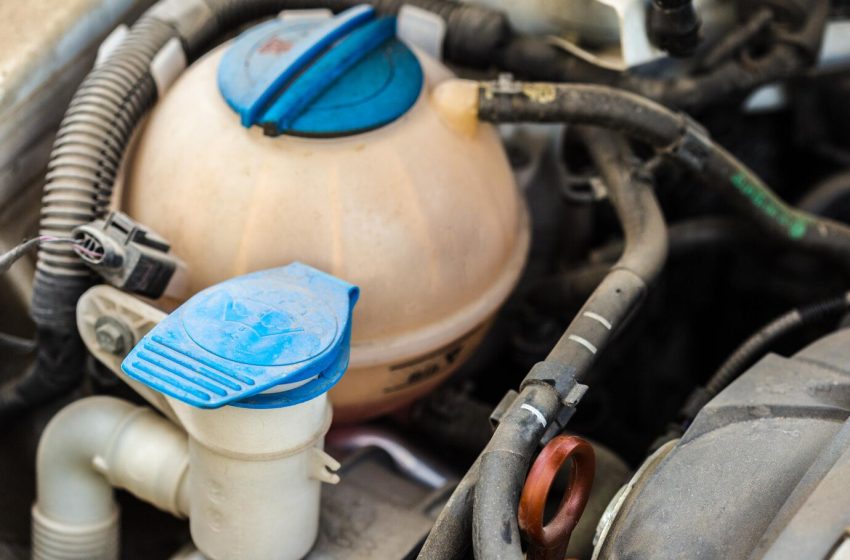The Role Of Additives In Improving The Efficiency Of Transmission Oil In Electric Vehicles

There are a lot of variables that are contributing to the rapid expansion of the world’s energy consumption. Some of these factors include the growth of the population, the development of the economy, and the urbanisation of the world. It is not only that this increase is contributing to climate change, but it is also putting a strain on the resources that are available on the earth.
Friction is a substantial contributor to the loss of energy in a wide variety of industries, and the transportation industry is a large contributor to the production of carbon dioxide through its operations. In view of the fact that electric vehicles (EVs) have the potential to reduce carbon dioxide emissions by as much as 77%, they present a promising solution to the problems that have been identified. Despite this, there is still a significant amount of work that has to be done in order to improve the efficiency of electric vehicles.
Current State of Tribology in EV Applications
The field of tribology, which is the study of friction and wear, is one area in which major improvements can be achieved in terms of the efficiency of electric vehicles. A staggering twenty percent of the entire energy consumption in the world is attributed to friction, which is a key contributor to the efficiency of electric vehicles (EVs). Friction is responsible for so much of this energy consumption. Tribology has the potential to assist in extending the driving range of electric vehicles and improving their efficiency. This is accomplished by reducing the amount of friction that occurs in components such as gears and rolling bearings.
It is vital to develop new advanced lubrication specialties that incorporate advanced additives in order to meet the performance requirements of future electric car lubricants. This will allow such lubricants to fulfil the standards. The application of nano additives, in particular, has the potential to considerably improve the tribological properties of lubricants while simultaneously lowering the impact that these substances have on the environment. The performance of lubricants can be improved by the addition of nanoadditives, which are particles that are incredibly small and can be added to the material. Moreover, they have the capacity to improve the thermal stability and oxidation resistance of lubricants, in addition to reducing the amount of friction and wear that takes place.
Challenges
There are a few challenges that need to be conquered before nano additives can be utilised to a significant degree in the lubricants used in electric vehicles. The manufacturing of nano additives can be relatively expensive, which is one of the problems that must be addressed. In addition to this, they can be challenging to disperse evenly in lubricants, which is another issue that they bring. On the other hand, researchers are working on ways to overcome these obstacles, and it is possible that nano additives will play an increasingly prominent part in the lubricants that are used in electric vehicles in the future.
Methods To Use Nano Additives
There are a number of other methods that can be utilised in addition to the utilisation of nano additives in order to enhance the efficiency of electric vehicles. The utilisation of lightweight materials, the decrease of aerodynamic drag, and the development of the efficiency of electric motors are some of the examples of these. Through the combination of these strategies, it is possible to achieve significant increases in the efficiency of electric vehicles.
Increasing the efficiency of electric vehicles is a key step toward reducing our dependence on fossil fuels and mitigating the effects of climate change. This is because electric vehicles are extremely efficient. The development of new technologies that will make electric vehicles (EVs) more efficient and economical can be accomplished via the collaboration of researchers and industry. This will contribute to the establishment of a future that is cleaner and more sustainable.
The Promise of Nanolubricants for EV Applications
When it comes to the issues that electric vehicles confront in terms of efficiency and durability, researchers are looking to tribology, in order to discover solutions to these issues. Tribology is a field that can help prolong the driving range of electric vehicles by lowering the amount of friction that occurs in components such as gears and rolling bearings. This can be accomplished through the application of tribology. In addition, researchers are employed in the process of designing new lubricants that use cutting-edge additives. These automotive specialties have the ability to increase the tribological properties of lubricants while also being environmentally benign. They are also a good choice for recycling. One of the areas of research that shows promise is the utilization of nanoadditives, which have been shown to have good anti-friction and anti-wear characteristics in addition to high thermal conductivity. These qualities make them an excellent choice for use in low-viscosity lubricants, which are essential for the efficient removal of heat in electric vehicles. As a result of specialty qualities, they are best for use in automotive lubricants.
Researcher Are Still Looking For The Innovative Ways
Despite the fact that nanolubricants have been demonstrated to be successful in lowering friction and wear in conventional lubricants, research on their application in electric vehicles is still in its basic phases. A recent study, on the other hand, has revealed findings that are very positive. For instance, a study that was carried out found that a PAO6 nanolubricant that contains MoS2 nanotubes greatly reduced the amount of friction and wear that occurred in comparison to a base oil for the same purpose. Because of this, nanolubricants appear to be a potentially profitable choice for the creation of lubricants that are capable of satisfying the specific tribological needs of electric vehicles. This is because nanolubricants are able to satisfy the criteria of electric vehicles. Despite the fact that additional research is necessary to acquire a comprehensive grasp of the potential of nanolubricants for electric vehicles, these preliminary findings are encouraging.

